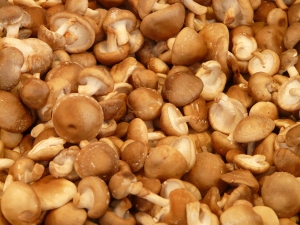Scientists to help Sikkim farmers grow ‘Rs 3,000/kg’ mushroom variety with enhanced Vitamin D
CSIR scientists say three food-processing cluster centres will be set up in Sikkim, each cluster likely to empower 250 households by providing them additional income.`
New Delhi: Scientists at the Council of Scientific and Industrial Research (CSIR) have started a project that will allow farmers in Sikkim to earn additional income by cultivating Vitamin D-enriched shiitake, a mushroom native to East Asia.
The fragrant, large umbrella mushroom is mostly used in Japanese cuisine, but is becoming increasingly popular in India. The mushrooms are expensive because they grow in very specific conditions on logs of fallen trees. Although shiitake is cultivated in north-east India at present, researchers at CSIR-IHBT have created a new technology that allows these mushrooms to grow in controlled lab conditions much faster.
According to Rakshak Kumar Acharya, a microbiologist at IHBT, Palampur, the technology had been earlier transferred to a number of private companies in India.
“In Delhi markets, it is sold at 3,000 per kg. Rates are very high compared to other mushrooms. This is because it has a very good smoky and meaty flavour,” he told ThePrint.
Three food-processing cluster centres are being set up in Sikkim in collaboration with the Ministry of Micro, Small and Medium Enterprises. Apart from facilities to grow the mushrooms, the centre will also have processing and packaging facilities. The government has allocated Rs 2.34 crore for each of the three cluster centres, and the foundation stone for the first centre was laid down on 29 January.
Enhancing Vitamin D content
The team at CSIR-IHBT has also created a process to enhance the Vitamin D content in these mushrooms in the lab.
According to the researchers, each cluster is likely to empower 250 households by providing additional income.
Credits and source of this article: The Print
For the complete article, click here






















